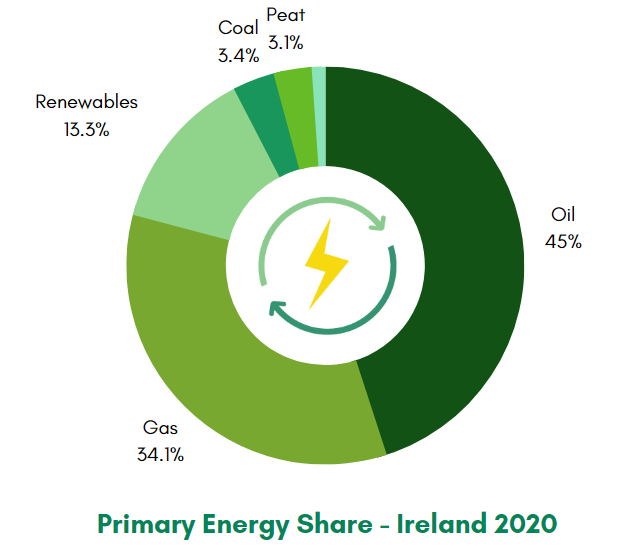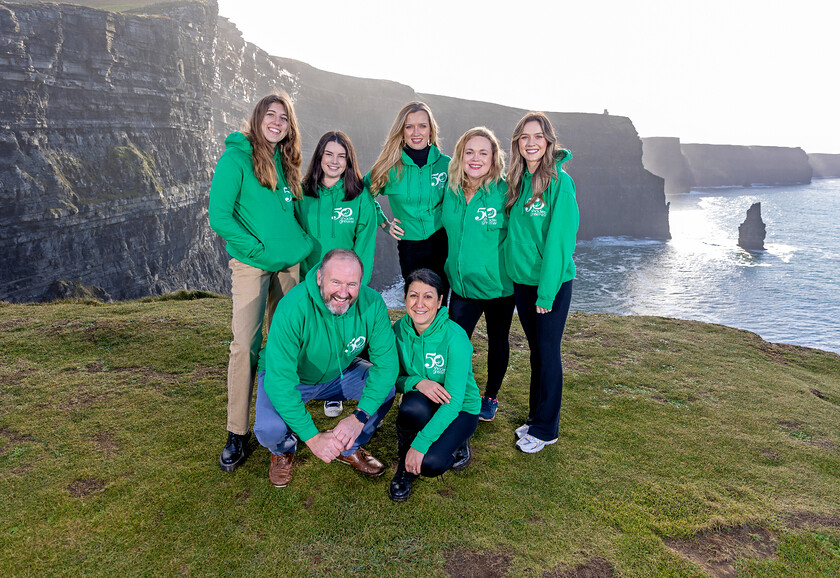SDG 7 - Affordable and Clean Energy - Sustainable Development Goals
Jun 07, 2023In 2015, leaders from 193 different countries agreed on 17 global goals they felt the world needed to achieve by 2030. The seventh of these goals is Affordable and Clean Energy, which is about ensuring access to affordable, reliable, sustainable, and modern energy for all.
Achieving Affordable and Clean Energy for All!
The main goals of SDG 7 are to create a world where everyone has access to energy, where the proportion of renewable energy is higher, and where funding and infrastructure are made available to the countries that need it most!
Energy can mean many different things - from the food we put in our bodies, to the coal that is burned to power industrial machinery, to the radiation used to carry out an X-ray in a hospital. Energy is all around us. It powers our homes, our cars, and much of our lives.
The vast majority of this energy that powers our world comes from three main sources: Oil (31%), Coal (27%), and Gas (25%). Approximately 35 billion barrels of oil are used worldwide every year, which is the equivalent of about 95 million barrels a day. Numbers like these are often hard to imagine or put into context. Another way to look at it is that 4.5 barrels of oil are used yearly for every woman, man, and child living on the planet. This might not seem like a lot, but if you imagine every person that you see walking down the street dragging 4 and a half barrels of oil along behind them, you start to realise the significance.
It's often easy to feel disconnected from these figures too. We don’t use crude oil in our homes or in our vehicles, so it’s hard to imagine how we contribute to these astronomical figures. However, the reality is that we all contribute to these numbers in our everyday lives, even in places we might not think. In Ireland, for example, about 80% of our energy comes from oil and gas, the majority being oil (see below). That’s the energy we use to power our homes, drive to work, and even send a text!

Like many things, when it comes to our environmental impact it can be hard to imagine the difference we can make as individuals. People often claim that unless large corporations and industries make significant changes, anything that individuals do is meaningless. While it is absolutely true that big companies need to make substantial changes, and the framework of the energy industry itself needs much work, the impact of individual change is one that cannot be ignored!
In Europe, households rank second highest in final energy consumption by sector with more than a quarter of total energy use, ranking above industry, and just slightly below transport (see fig below).

Similarly, in Ireland, residential homes account for more than a quarter of total energy-related CO2 emissions. The impact of collective action cannot be ignored! If every household in Ireland was to reduce its energy use by even 20%, it would mitigate almost 2 million tonnes of CO2, over 5% of Ireland’s total energy emissions!

Scientists predict we have used up 40% of the Earth’s oil, meaning we will run out in less than 50 years (100 years for coal). Yet presently, only about 17% of final global energy comes from renewable resources. While the share of renewables has increased by 25% since 2010, this is not nearly fast enough to meet the SDG targets.
The sun radiates the energy of about 10,000 times the amount of our present global energy needs, so there would appear to be a very simple solution to this critical issue. If we can increase the share of renewables in the energy sector, while at the same time reducing the amount of energy we use, the problem will theoretically be solved, right?
While this is definitely the way to aim, unfortunately, it is not as simple as it may look. The reason is to do with energy efficiency and energy transformation. While renewable energies like solar, wind, and geothermal are fantastic alternatives to fossil fuels, they are still not as efficient as their polluting counterparts, and therefore cannot sufficiently satisfy our energy requirements alone. It can also be very difficult to transport renewable energies from the place where we create them, to the places they need to be. For example, solar and wind farms need to be located in areas where there are lots of sun or wind. However, much of the time, these locations are far away from the towns and cities that require this energy, and transporting them can be tricky. It is much easier to put oil into a barrel and onto the back of a truck than it is to get energy produced by a wind turbine from one side of the country to the other.
It's not all hopeless, however! New technologies are helping to make renewable energies more efficient and viable for everyday use. Good examples of this can be seen in the increase in electric or hybrid vehicles that we see on our roads, more efficient solar panels that can be used to power our homes, and even things like kinetic pavements that can generate energy from footfall in busier cities.
Access To Energy
But before we can focus on making sure that renewable energy is made available for people to access, we need to ensure that everyone has access to energy in the first place! Unfortunately, in today’s world, energy is still a luxury for some and remains out of reach for many. Despite an increase in access to modern energy from 81% in 2010 to 91% in 2020, there are still 733 million people without access to electricity and 2.4 billion without access to clean cooking, according to the most recent data published by the UN. Continuing on this trend would mean that by 2030, there would still be 679 million people without electricity, therefore the report underlines the need to increase the number of new connections to 100 million a year in order to achieve universal access.

Most of those without electricity live in Sub-Saharan Africa, where the percentage of the world's population without electricity increased from 71 percent in 2018 to 77 percent in 2020. The largest unmet needs can be seen in Nigeria (92 million people), the Democratic Republic of the Congo (72 million people), and Ethiopia (56 million people). This is extremely concerning, particularly given that international financial flows to developing countries for renewables declined significantly for the second year in a row, from $24.7 billion in 2017 to $10.9 billion in 2019.
“This is not just a matter of statistics; it is a moral imperative to act.”
Juwang Zhu, May 2023, Acting director of the Division for Sustainable Development Goals at the UN

Unfortunately over the last few years, there have been many factors that have substantially impacted progress towards providing affordable and clean energy to all. The widespread effects of the COVID-19 pandemic, including lockdowns, disruptions to global supply chains, and the diversion of financial resources to keep food and fuel prices affordable, significantly impacted progress toward this goal. Particularly in the most vulnerable nations and those that were already behind in energy access, progress has been prevented. Nearly 90 million individuals in Asia and Africa who had access to power in the past are now unable to afford to cover their essential energy demands. According to the World Bank, the impacts of the pandemic have been compounded by the Russian invasion of Ukraine, which has led to uncertainty in global oil and gas markets and has sent energy prices soaring.
What would the world look like if SDG 7 was fully implemented?
It would be a world where every human being on the planet has access to affordable, reliable, clean, modern energy. Where everyone has access to clean cooking systems. Where renewable energy sources make up the majority of the share of energy systems. Where energy efficiency is doubled, resulting in more effective energy systems and reduced energy usage. Where international financial flows to developing countries in support of clean energy research/development and renewable energy production are prioritized and followed through on. Where infrastructure and upgraded technology for supplying sustainable energy services in developing countries are expanded and implemented.
What can we do to help realise this goal?
It is clear that global energy use is a diverse and complex system, and as a result, energy issues require diverse and complex solutions.
Governments must adopt a holistic approach to policy making, as well as ensuring more specific nationally determined contributions in order to address energy issues. Moving towards decarbonization by prohibiting fossil fuel use, shifting investments to renewables, restricting the sale of petrol and diesel vehicles, and controlling deforestation is crucial.
In terms of private companies, the World Economic Forum outlines four key areas that should be at the forefront in leading the global energy transition. Companies should focus on using the leverage offered by increased digitalization, the global environmental benefits of decarbonization, the resilience cultivated by diversification, and the discovery of new and innovative energy solutions such as those we have mentioned earlier.
And what about us? As we’ve mentioned, the power of individual and collective action is significant, and there are many things that we can do that can play a part in reaching the overall goal! Below are some examples of small changes you can make, and if you are ready to go the extra mile you can check our Green Skills training programme:
- Work from home up to 3 days a week where possible
- Use timers and thermostats to heat your home and hot water when you need and to the temperature you need
- Use cookers, tumble dryers, washing machines, showers, and kettles efficiently and where possible outside peak hours of 4-7 pm
- Air dry your laundry instead of using the dryer
- Switch off your appliances at the socket. Turn off the lights when you’re not using them
- Turn off your air conditioning, especially for sleeping – open a window or use a fan
- Buy rechargeable electronics. Don’t buy or use one-use batteries
- Don’t use multiple devices at the same time. Be mindful of this and only use several devices when absolutely necessary
- Drive at lower speeds, where safe and practical, to reduce your fuel use
- Car-free Sundays in cities
- Increase car sharing and adopt practices to reduce fuel use. Reduce public transport prices and incentivize walking and cycling. Using trains instead of planes where possible
- Avoid business air travel where alternative options exist
- Increase adoption of electric and other more efficient vehicles
- Use solar energy sources. Install solar panels in your home for your heating and electricity. Use solar technology – radio, charger, lights, etc.
- Find a Goal 7 charity you want to support. Any donation, big or small, can make a difference!
- Stay informed. Follow your local news and stay in touch with the Global Goals online
Lead the Way in Sustainable Energy
Want to make an impact in transforming energy systems and building a sustainable future? Our ESG Leader Programme empowers professionals to integrate sustainability into their organizations, covering renewable energy, resource efficiency, and actionable ESG strategies. Don’t miss your chance to lead the energy transition!
“Goal 7 is about ensuring access to clean and affordable energy, which is key to the development of agriculture, business, communications, education, healthcare and transportation. It is clear that the lack of access to energy hinders economic and human development and so my view on this is that energy should be produced, owned and managed by our country’s governments and taken away from the hands of private companies.
The key is in the SDG name: “Affordable energy”. I have nothing against privately owned companies, I own one myself, but if the world agrees that energy is an absolute necessity to run our lives and industries, it cannot become a bargaining tool for private companies to generate profits from its production and sale.”
Raquel Noboa, CEO and Founder – Fifty Shades Greener
Affordable and Clean Energy is the 7th sustainable development goal, and as we can see, all goals are highly interrelated and depend on each other.
Thank you for reading today.
The FSG Team 💚



